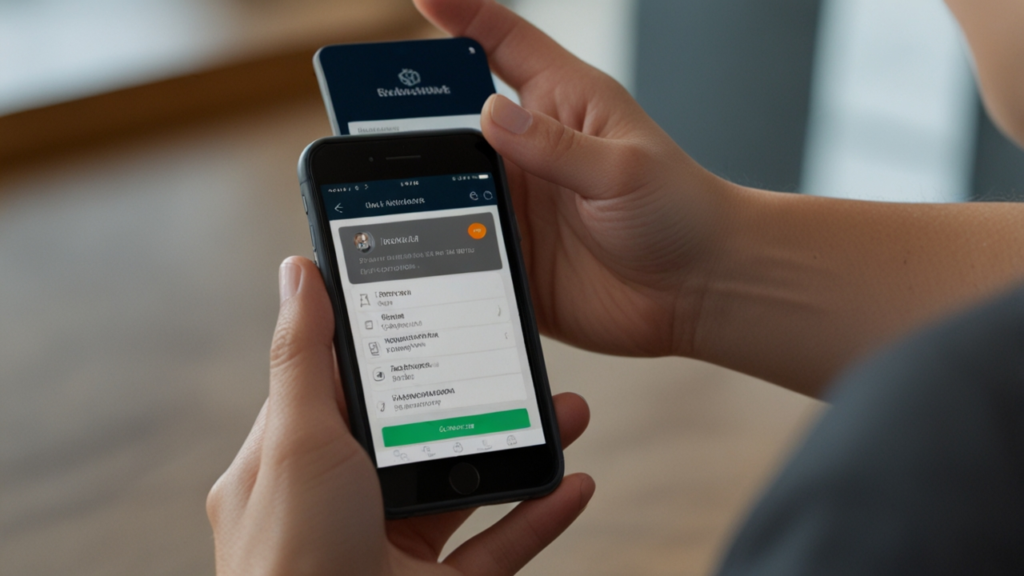Self-Sovereign Identity 1 Fundamental Principle
This article explores the dynamic world of Self-Sovereign Identity, delving into its foundational roots, current market evolution, and future possibilities. With clear explanations and engaging examples, we will demystify technical jargon so that anyone can understand how digital identity is transforming and empowering individuals worldwide.
Digital identity is no longer controlled by central authorities but is instead shifted into the hands of individuals. In this article, you will learn about the technologies driving this revolution and real-world applications that prove its viability.
Our discussion spans from historical origins to modern implementations, inviting you to explore how the trend is set to evolve. Join us as we uncover each layer of this transformative approach in today’s digital landscape.
Table of Contents
- Introduction to Self-Sovereign Identity
- Evolution and History of Self-Sovereign Identity
- How user-controlled digital identity Enhances Self-Sovereign Identity
- decentralized credentials Systems and Their Applications
- Real-World Case Studies of Self-Sovereign Identity
- personal identity ownership in Modern Self-Sovereign Identity Solutions
- Future Trends: individual identity control and Beyond
Introduction to Self-Sovereign Identity
Concept and Importance
The idea of Self-Sovereign Identity represents a transformative shift in the digital identity paradigm. Today, power is moving from centralized control to individuals. In this section, we explore how this concept creates opportunities for secure and private online interactions. You might also check out Blockchain advancements for more information.
Historically, identity was managed by states and large institutions. However, technological advancements have paved the way for individuals to control their personal data. According to a detailed study on historical SSI evolution, early pioneers laid the groundwork for this decentralized model.
Have you ever wondered how control of your digital life could be revolutionized? What benefits might emerge when you decide who accesses your information?
Basic Principles and Stakeholders
At its core, Self-Sovereign Identity allows individuals to manage their identifiers and verifiable credentials independently. This shift in control means that you get to be the custodian of your digital persona. In a world where privacy is paramount, this represents a breakthrough.
The ecosystem is built upon decentralized technology, including blockchain-driven identifiers. For more information, explore Digital Transformation, which shows how decentralization reshapes various industries.
Stakeholders such as governments, private companies, and tech innovators are converging on this model. Could this new approach change the way institutions verify your identity?
Evolution and History of Self-Sovereign Identity
Historical Foundations and Philosophical Roots
Self-Sovereign Identity is deeply rooted in historical and philosophical traditions. The concept of identity began with early forms of sovereignty defined by thinkers like Jean Bodin in the 16th century and later codified by events such as the Peace of Westphalia (1648). This evolution from centralized power to distributed negotiation set the stage for modern digital identity. You might be interested in exploring insights provided by Artificial Intelligence about historical transitions.
Modern discussions gained momentum with groundbreaking works like Kim Cameron’s “The Seven Laws of Identity” (2005). Data breaches at companies like Yahoo, Equifax, and Uber during the 2010s further underscored the need for individual control over data. For a comprehensive account, see origins insights from LifewithAlacrity.
How do these foundational events still influence the way you manage your identity today?
Milestones and Industry Impacts
Significant milestones have shaped the evolution of Self-Sovereign Identity. Early theoretical frameworks have now translated into operational systems that empower users globally. Documented in a whitepaper available at Gobekli’s digital journey, these developments highlight cross-border verifications for education and healthcare credentials.
One landmark moment was the introduction of decentralized identifiers (DIDs) and verifiable credentials (VCs), which provide cryptographic verification without compromising on privacy. A comprehensive timeline is also available in a published document at this whitepaper.
Can you envision your personal or professional identity evolving with these breakthroughs?
How user-controlled digital identity Enhances Self-Sovereign Identity
Empowerment Through Decentralization
User-controlled digital identity enables individuals to take charge of their personal information. Instead of relying on traditional institutions, you can now verify your credentials yourself. To learn more about these cutting-edge improvements, consider Innovative Solutions in today’s digital economy.
This decentralized approach mitigates risks associated with centralized databases, reducing the chance of large-scale data breaches. According to generally accepted industry insights, cryptographic protocols add an essential layer of security that reassures users about the integrity of their identities.
Does the thought of having full control over your personal information inspire you to explore these new systems further?
Role of Cryptography and Data Privacy
Advanced cryptographic techniques lie at the heart of secure Self-Sovereign Identity systems. These methods ensure that your data remains private and protected from unauthorized access. Embracing these cryptographic solutions allows you to verify and authenticate credentials without surrendering control.
Data privacy regulations, like the EU’s GDPR, have spurred organizations toward implementations that prioritize user empowerment. For more information on privacy-centric designs, see comprehensive guidelines from Identity.com.
How might the integration of secure protocols change your perspective on sharing personal data online?
decentralized credentials Systems and Their Applications
Understanding Decentralized Credentials
Decentralized credentials are a crucial component of this identity revolution. They are digital attestations that you manage, such as diplomas or licenses, which are cryptographically signed and stored. This mechanism not only improves portability but also ensures consistency across multiple systems. You may review Future Technologies for more context on how these systems are being implemented.
The use of decentralized identifiers (DIDs) means that these credentials are independent of any central authority. This shift towards decentralization offers increased resilience and privacy, paving the way for innovative approaches in sectors like finance and healthcare.
Have you ever considered how controlling your credentials might protect you from data misuse?
Applications and Real-World Utility
Decentralized credentials have far-reaching applications. They are already being piloted in government systems for digital driver’s licenses and secure healthcare records. In addition, various private sectors are exploring these systems to enhance supply chain security and streamline recruitment processes.
Practical implementations, such as those funded by the US Department of Homeland Security and Canadian pilots, illustrate the efficiency of this model. For additional insights, refer to policy perspectives on SSI.
What real-world challenge could benefit from adopting a decentralized credential system in your view?
Real-World Case Studies of Self-Sovereign Identity
Government and Public Sector Initiatives
Across the globe, governments are testing and implementing Self-Sovereign Identity solutions. In Europe, pilots under the European Self-Sovereign Identity Framework (ESSIF) and the European Blockchain Service Infrastructure (EBSI) are shaping the future of cross-border verification. For instance, Germany is exploring SSI for digital driver’s licenses and healthcare records.
This innovation is supported by initiatives in the Americas, such as a public directory in British Columbia, Canada, that digitally verifies company data. To gain additional background, please visit historical case insights.
Have you observed any government programs in your region that pave the way for similar digital innovations?
Private Sector and Corporate Engagement
Large corporations are also investing heavily in Self-Sovereign Identity systems. Notable examples include Microsoft ION and various startups dedicated to secure identity management. These companies are leveraging blockchain technology to give users full control over their digital identifiers.
Innovative pilot programs by firms like IBM, Salesforce, and SAP demonstrate the scalability and versatility of these systems in sectors ranging from finance to healthcare. A robust examination of these private sector implementations further underscores their potential.
How might the involvement of global corporations influence the adoption of such technologies in everyday transactions?
Comprehensive Comparison of Case Studies
| Example | Initiative | Application/Impact | Region |
|---|---|---|---|
| ESSIF/EBSI | Government Pilot | Cross-border credential verification | Europe |
| Digital Driver’s License | National Pilot | Healthcare and transportation | Germany |
| BC Verifiable Directory | Public Initiative | Corporate credential verification | Canada |
| US Customs Pilot | Government Pilot | Traveler identity verification | Americas |
| Microsoft ION | Corporate Project | Decentralized identifier network | Global |
personal identity ownership in Modern Self-Sovereign Identity Solutions
Empowering the Individual
Modern solutions for personal identity ownership in digital systems empower you to directly manage your credentials. The ability to verify your qualifications and personal information without intermediaries fosters trust and enhanced privacy. In addition, campaigns in various sectors demonstrate the capacity of these systems to disrupt traditional models.
Innovative startups and established firms such as SAP and IBM are now enabling individual control in fields ranging from education to finance. These systems highlight a crucial transformation, as detailed data from market reports predicts exponential growth in adoption by 2025. For further data insights, please refer to Blockchain applications in identity management.
Do you believe that enhanced individual control over identity could dramatically change everyday digital interactions?
Integration with Emerging Technologies
The convergence of emerging technologies with modern personal identity management solutions signifies a new era. Integrating artificial intelligence for risk detection and blockchain for immutable record keeping, these systems ensure consistency and reliability. Moreover, regulatory trends such as GDPR mandate heightened user control, compelling companies to revise their identity solutions.
Reports suggest that the market will see tremendous growth, with forecasts indicating a market size of $920 million by 2025. The proven benefits of these integrations foster widespread adoption across finances, healthcare, and governmental services.
How might the combination of these emerging technologies improve the security and usability of your digital credentials?
Future Trends: individual identity control and Beyond
Anticipated Advancements
Looking to the future, Self-Sovereign Identity systems are set to become the standard for digital identity management. Experts predict that with a compound annual growth rate of 86.8% from 2019 to 2033, these systems are not only viable but are integral to the future of secure digital ecosystems. This growth is driven by increasing privacy concerns and intensified regulatory demands.
Innovative functionalities, such as seamless interoperability and integration with IoT and AI, are on the horizon. These advancements are expected to transform interactions across regulated sectors including finance, healthcare, and government services.
What future features would you be most excited to see integrated into digital identity management systems?
Global Impact and Adoption Strategies
The global impact of Self-Sovereign Identity will be seen through regional factors. Europe leads with robust regulatory support, while North America pursues a blend of governmental and private pilot initiatives. In Asia-Pacific, rapid digitalization combined with government-led pilots is ushering in new paradigms of trust.
As these models mature and become more standardized, user education and seamless onboarding will be crucial for widespread adoption. The success stories shared by early adopters offer a pathway for other regions to follow, emphasizing customized strategies that prioritize both security and usability.
Do you think these future trends will drive a fundamental shift in how digital identities are perceived worldwide?
Self-Sovereign Identity – A Captivating Look Ahead
This section intends to captivate those curious about transformative changes in digital management, presenting a reflective overview that focuses on the benefits of transitioning from centralized models to systems where individuals exercise clear control. The discussion sheds light on decentralized methodologies that enable secure handling of digital assets and navigation of complex frameworks, all while minimizing risk and enhancing privacy. As digital ecosystems evolve, users are increasingly seeking systems that allow for direct control over their own data, leading to heightened trust and new operational efficiencies.
The narrative unfolds with insights into market growth and innovative collaborations between government and industry leaders, emphasizing a future where responsibility and empowerment converge. With innovation fueling rapid changes, there is a compelling vision of interconnected systems that open the door to novel applications, streamlined user journeys, and more resilient infrastructures. This forward-looking perspective invites you to ponder the long-term implications of digital decentralization in everyday life and to embrace a future that redefines personal governance in digital spaces.
The ideas presented bridge the gap between theoretical potential and real-world impact, offering a uniquely optimistic outlook on what lies ahead. Envision a landscape where every decision regarding digital assets is made with a nuanced understanding of technology and trust. As these models mature, individuals will find themselves at the helm of their digital destinies, steering the evolution of a more inclusive and secure online world.
FAQ
What is Self-Sovereign Identity?
Self-Sovereign Identity is a decentralized digital identity model that allows individuals to have complete control over their personal information without relying on central authorities.
How did the concept evolve?
The concept evolved from historical ideas of sovereignty, drawing inspiration from both philosophical foundations and modern technological innovations like blockchain and cryptography.
What technologies support these systems?
Key supporting technologies include decentralized identifiers (DIDs), verifiable credentials (VCs), and blockchain-based distributed ledger technology, all of which ensure data privacy and security.
Which sectors are adopting these solutions?
Governments, financial institutions, healthcare providers, and large corporations are implementing these solutions to improve identity verification, data privacy, and user empowerment.
How can I learn more about these advancements?
You can explore various industry reports and whitepapers, as well as resources from technology-focused platforms, to stay updated on the latest trends and developments.
Conclusion
Self-Sovereign Identity stands as a transformative force in digital identity management. Through decentralization, advanced cryptography, and global innovation, individuals are now empowered to take control of their personal data. The journey from historical sovereignty to modern digital control has opened up unprecedented opportunities for secure interactions and trust-building across various sectors.
As regulatory frameworks continue to evolve and technology integrates further with everyday life, the future of digital identity looks promising. Have you experienced this shift in how data is managed in your own interactions?
For more information on how this transformative shift is impacting the digital landscape, please explore additional resources and share your thoughts in the comments. Your perspectives help shape the future of this exciting domain. If you have any queries or suggestions, feel free to Contact us.
Thank you for joining us on this deep dive into the world of Self-Sovereign Identity. Together, we are stepping into a future where individual empowerment and data security prevail.
Discover more from Fabelo.io
Subscribe to get the latest posts sent to your email.



